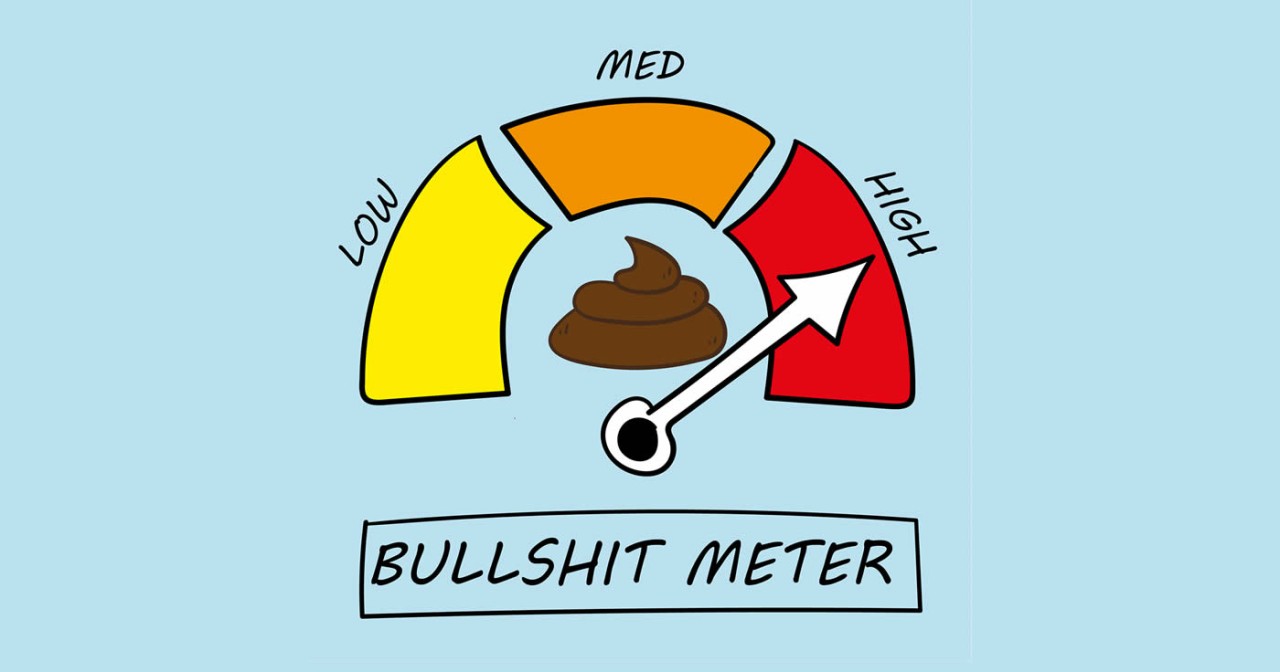
Workplace bullshit, and the C.R.A.P. framework for cutting down on crap
Subscribe to"Economics In A Nutshell" if you enjoy articles like this!
----------------------
I've had a really fun morning reading Ian McCarthy's paper on Confronting indifference toward truth: Dealing with workplace bullshit. Here's the essence of the paper, distilled into a quick and easy read.
What is Workplace Bullshit?
Philosopher Harry Frankfurt said it best over 30 years ago - Lying is when people know the truth and misrepresent it. Bullshitting is when people just talk without caring what the truth is.
Workplace bullshit is when this happens at work. You've probably encountered it at some point - sometimes it takes the form of platitudes or an insincere statement, other times it's fancy-sounding stuff that doesn't really make any real sense (my personal pet peeve is anyone who says "110% effort").
Using C.R.A.P. to deal with Workplace Bullshit
(1) Comprehend - who, what, and why?:
In order to deal with bullshit, you need to first understand why people bullshit, and why others will happily buy into that bullshit and help spread it around. Often, bullshitters know much less than they pretend to, and are just hiding behind pretty words that are carefully chosen to hoodwink anyone who will listen. And listeners are also more likely to buy into that bullshit if it somehow helps them, makes them feel better about themselves, or confirms something that they already believe in.
(2) Recognize - know thy enemy:
Bullshit comes in many forms - abstract terms, vague phrases, catchy jargon, or even references to pop culture that make the bullshit seem more relatable and hence believable.
The first rule of recognizing bullshit is to expect it to come your way. Once you accept and expect that you will encounter bullshit, you can prepare how to identify it, and then move on to the next step of dealing with it.
(3) Act - stop the bullshitter:
Once you have recognized the bullshit, there are many ways to stop it. The most passive way is to disengage from the bullshit - listen, nod politely, but don't help the bullshitter to spread his nonsense any further.
A slightly more proactive move would be to exit stage left. If you aren't around, the bullshitter will have one less audience to bullshit to. And hopefully in time, he or she will take the hint and stop bullshitting altogether.
The last and most direct way is to call out the bullshitter. It doesn't have to be rude or confrontational - sometimes a simple question asking where the facts came from, or asking them to clarify on a certain jargon word, will be enough to catch the bullshitter off guard and reveal the truth.
(4) Prevent - an ounce of prevention beats a pound of cure:
Prevention is better than cure, and it is important to create a work environment where bullshitting is neither rewarded or tolerated. In the long term, this will be the most effective way of eliminating bullshit once and for all.
Encourage critical thinking and questioning. If someone says something that seems vague or unclear, don't be shy to ask more questions and probe deeper. You might help to unveil some bullshit going on, or you might actually further your own understanding of what the speaker is saying.
Stop using excessive jargon. Often, bullshitters hide behind pretty jargon and catch phrases that don't make much sense. We're all guilty of some form of bullshitting, and if we actively stop ourselves from using jargon, we can help reduce bullshit.
Question pop-culture references. Using pop-culture examples as an analogy is a common way of making bullshit seem authentic and relatable, without actually providing any new perspectives or information. Call out people who constantly use these references to find out if there's any real substance, or whether it's just smoke and mirrors hidden behind a Harry Potter analogy.
Evidence-driven approach. Rather than taking what people say as the ultimate truth, find out if they have any concrete evidence to support their words. But also beware that people can also use data to lie, and so you should be careful and not blindly believe the data.
What's the biggest example of bullshit you've heard recently? And how do you deal when bullshit comes your way? Share your experiences in the comments below!
----------------------
Subscribe to"Economics In A Nutshell" if you enjoy articles like this!
Sr.Accountant at Jaihind infratech Projects Pvt.Ltd.
3yGreat article
International Tax Advisor
3yGreat article - I'll give it 11 out of 10 😁